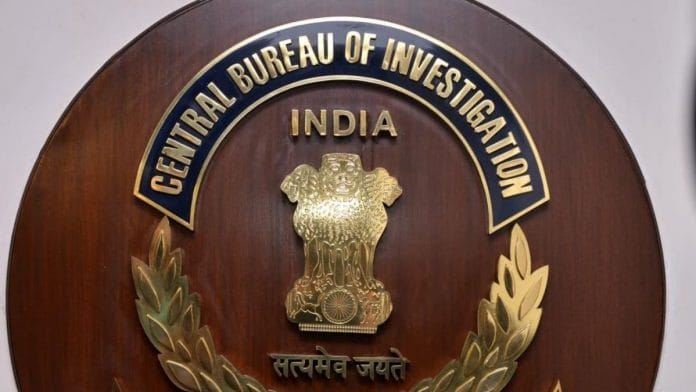New Delhi: The Central Bureau of Investigation (CBI) has alleged that two private companies — M/s Unitac and M/s Sane Ventures — were used as proxy firms by the Kerala government for receiving foreign contributions from the UAE in order to evade audit and other formalities.
The funds were allegedly for the state’s LIFE Mission, a body that looks after housing projects for the underprivileged.
In an affidavit filed before the Supreme Court Monday, the CBI defended the Kerala High Court’s 12 January order that refused to quash its probe into the LIFE Mission housing project scam and denied the state’s claim that the investigation was politically motivated.
According to the CBI, LIFE Mission or any agency on its behalf cannot accept any foreign contribution. It reiterated that the two companies had received foreign funds for and on behalf of LIFE Mission and a portion of the same was allegedly paid to state representatives and government officials.
The CBI affidavit came in response to the top court’s 25 January direction, asking for its response to the Kerala government challenging an order of the state high court, which allowed a probe by the central agency into alleged corruption in the project.
Also read: ‘Police can forget bullet, hair at crime scenes’ — CJI suggests magistrates cadre for probes
‘Foreign contribution routed through third person’
The appeal, filed by the CEO of LIFE Mission Project, claimed that government projects were exempted under the Foreign Contribution Regulations Act (FCRA) and that the CBI probe was contrary to the spirit of federalism.
The CBI, meanwhile, disputed the Kerala government’s version of the agency’s authority to investigate the alleged scam. The agency said that an FIR in the case was registered while the government’s general consent allowing the central agency to exercise its power and jurisdiction to probe cases over the entire state was in operation.
This consent was withdrawn on 4 November 2020, while the FIR was registered in September 2020 for alleged offences of criminal conspiracy under the provisions of the Foreign Contribution (Regulation) Act, 2010, following a complaint by Congress MLA Anil Akkara.
In its order, the Kerala High Court had noted that a memorandum of understanding (MoU) between LIFE Mission and UAE Red Crescent was to provide AED 10 million financial aid to the state agency to construct housing units and a health centre for those whose houses were destroyed during the 2019 floods.
However, subsequent agreements were entered into by the Consular General of UAE, Thiruvananthapuram with Unitac Builders and Developers as well as Sane Ventures, not with LIFE Mission.
The high court found fault with these agreements and had remarked, “The very nature of the mischief done in furtherance of MoU would suggest involvement of highly educated professionals — a mastermind behind it.”
The agreement, the high court noted, could have been made to divert the funds to a third person without intervention of either the government or UAE Red Crescent by avoiding CAG audit to get kickbacks and gratifications.
The CBI affidavit referred to the HC’s findings in support of its probe.
“The Hon’ble High Court rightly held that prima facie it shows the extent of foul play and a conspiracy involving the officials of LIFE Mission. It is also clear that the foreign contribution routed through third person was for evading mandatory audit and other formalities, which would have applied if the funds were routed through Government machinery,” mentioned the CBI affidavit.
By receiving funds in the said manner, CAG audit, government formalities and the rigours of FCRA were avoided so that kickbacks could be received, the CBI alleged. The two firms got the contract for the housing project at Wadakkanchery without an open tender, given that the Kerala government did not accept the foreign contribution directly, the CBI findings revealed.
The contribution would have attracted scrutiny from audit agencies and LIFE Mission would have been compelled to award the work through an open tender after complying with the formalities, CBI submitted.
‘High court order not erroneous or absurd’
The CBI also told the top court that the decision of the high court to not exercise its discretion under section 482 of the Code of Criminal Procedure (CrPC) to quash the case is in no manner erroneous, absurd or otherwise warranting interference. The agency denied that the instant FIR is an attempt to initiate a roving inquiry against the LIFE Mission officials.
The central agency further argued that it was incorrect of the Kerala government to claim that FCRA will not be attracted against the LIFE Mission, its officers or employees.
The CBI insisted that it had jurisdiction since the state’s general consent allowing the agency to investigate offences in Kerala was in operation. Besides, a notification issued by the Union Ministry of Home Affairs authorises the CBI to take up FCRA violation cases, the agency told the top court.
“That it is relevant to note that the investigation of this case is at an initial stage and many of the key witnesses of this case have to be examined. As revealed from the investigation so far, this appears to be only a tip of an iceberg regarding the violations of foreign contribution,” the CBI said.
It added that roles of LIFE Mission officials as well as private persons are to be investigated in detail, apart from other aspects. “They are a major link in materialising the above contract and they were functioning as the conduit and fulcrum around which the LIFE Mission officials and other necessary influential persons were roped in,” said the CBI.
Also read: Disha Ravi vs Safoora Zargar — why judge gave bail to one young activist but not the other






